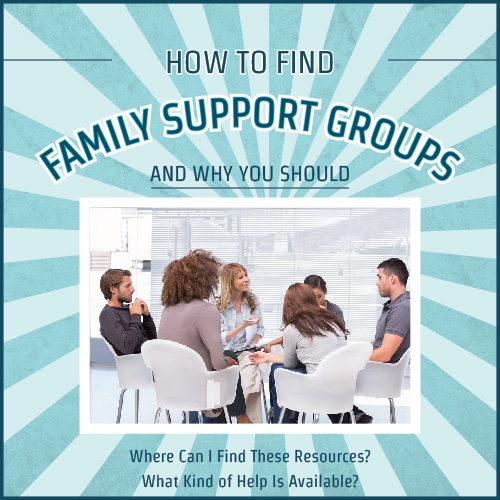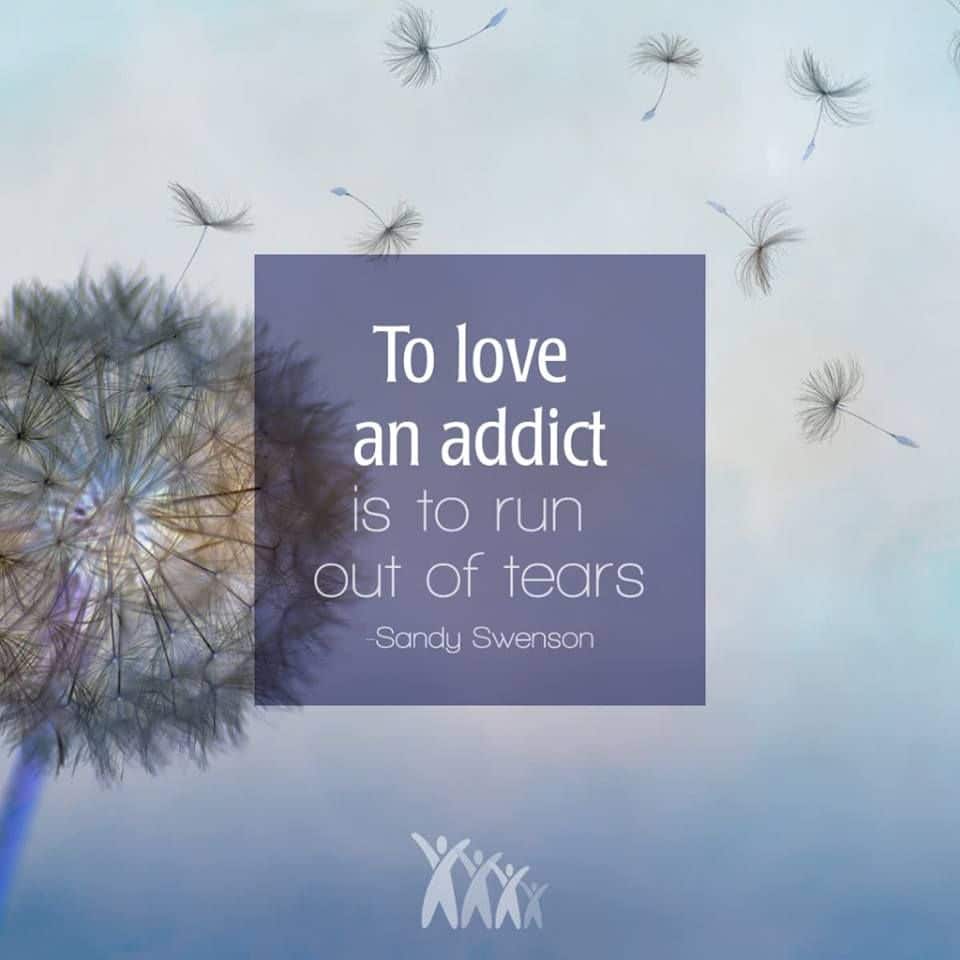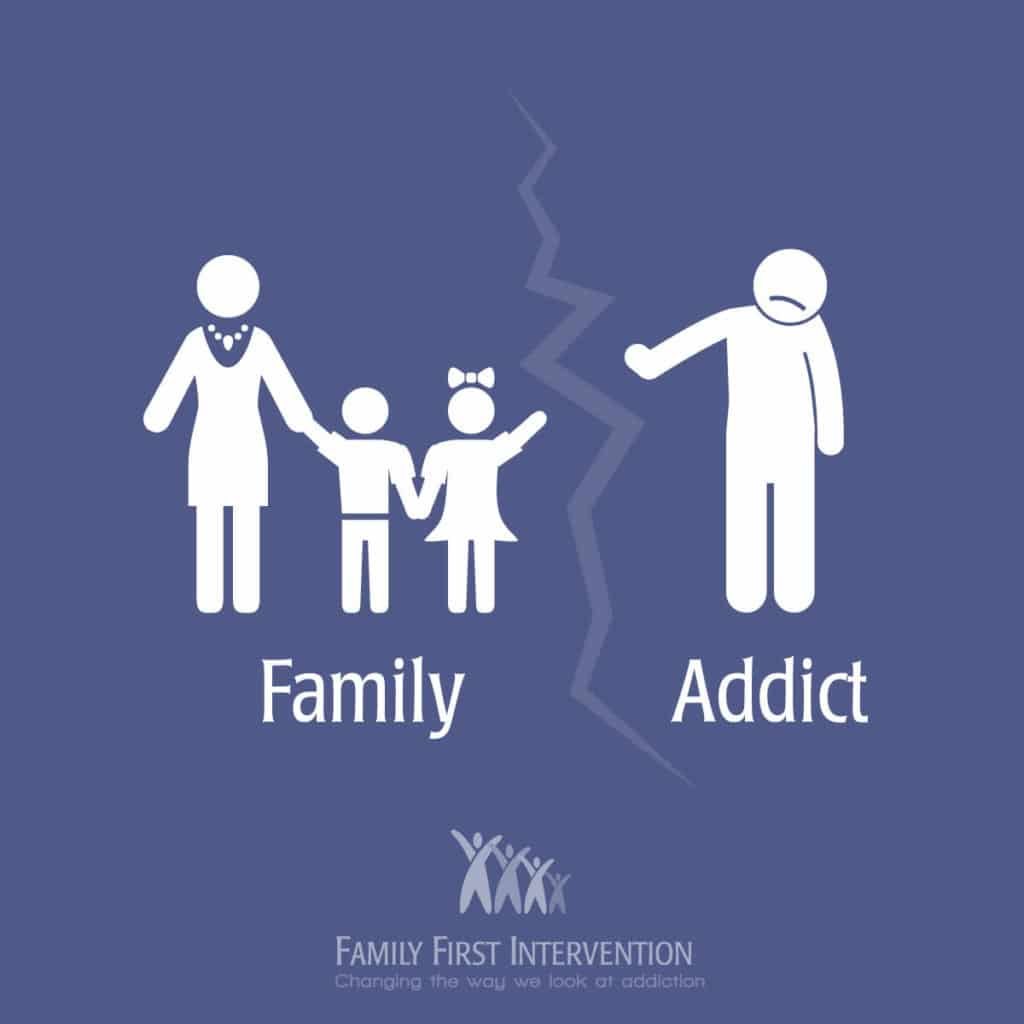How Addiction Affects The Family
Substance abuse affects a family on every level: emotional, psychological, financial, and social. A parents preoccupation with getting drunk or high can lead to neglect or abuse. The use of alcohol and drugs can lead to financial hardship, poverty, or bankruptcy. Shame and embarrassment over a family members intoxicated behavior can lead to social isolation and the avoidance of friends or relatives outside the home. These factors can create a destructive cycle in which substance abuse leads to emotional pain or mental instability, which triggers an even greater craving for alcohol or drugs.
Worst of all, addiction undermines the loving, trusting relationships that sustain a healthy family. Children may be forced into a parental role for parents who can no longer function independently. Spouses may hide their addictions from their partners, lying about their actions or expenditures. Parents of addicted children may go to great lengths to rescue a son or daughter from a destructive lifestyle, only to experience the heartbreak of seeing their child return to that lifestyle again and again. Restoring those relationships, which were often damaged long before the substance abuse began, requires time, patience, and the support of knowledgeable addiction professionals.
Smart Recovery Family & Friends
SMART recovery, or Self-Management and Recovery Training, is a secular alternative to Al-Anon and similar spirituality-based interventions. SMART Recovery Family & Friends is a science-based program for family members of people living with addiction. SMART Recovery Family & Friends has several meetings in many cities and uses non-confrontational methods to help loved ones cope with a friend or family members addiction.
Tips For Helping Someone With An Addiction
The challenge with addiction is that the addict is not the only one impacted by this disease. Family and friends can have difficulty with the addicts behavior, financial problems, legal problems and the daily struggle of supporting a loved one. Here are seven tips that family and friends can reference to support an addicted family member or friend.
Read Also: How To Stop Tobacco Addiction
Resources For Families Coping With Mental And Substance Use Disorders
-
While there is no one-size-fits-all solution for helping a family member who is drinking too much, using drugs, or dealing with a mental illness, research shows that family support can play a major role in helping a loved one with mental and substance use disorders.
When a family member is experiencing a mental or substance use disorder, it can affect more than just the person in need of recovery. Evidence has shown that some people have a genetic predisposition for developing mental and substance use disorders, and may be at greater risk based on environmental factors such as having grown up in a home affected by a family members mental health or history of substance use. Families should be open to the options of support groups or family therapy and counseling, which can improve treatment effectiveness by supporting the whole family.
It is also important to remember that the unique challenges that come from helping a loved one with a mental or substance use disorder can be taxing, so caregivers should take steps to prioritize their own health as well.
Family members may be more likely to notice when their loved ones are experiencing changes in mood or behavior. Being able to offer support, family members can connect those in need with treatment, resources, and services to begin and stay on their recovery journey.
What Is The Opioid Crisis

The opioid crisis is a complex public health issue. There are many factors that led us to the significant increase in opioid-related overdoses today. Some of these factors include:
- high rates of opioid prescribing
- the emergence of strong synthetic opioids in the illegal drug supply such as fentanyl and carfentanil
Read Also: How To Beat Nicotine Addiction
Parenting Teenagers With Addiction
Although it is illegal for anyone under 21 to purchase alcohol in the United States, underage drinking is rampant. Adolescents and young adults in the 1220 years age group drink over 10% of the total alcohol consumed in the US. Drinking alcohol is almost considered a rite of passage for teenagers. Many underage drinkers report binge drinking, defined as consuming 4 or more drinks for women, 5 or more drinks for men, on a given occasion. Binge drinking may place people at higher risk of alcohol addiction. The CDC reports that excessive alcohol consumption is responsible for more than 3,500 deaths of American youth each year.
In addition to alcohol, some teenagers experiment with dangerous drugs. In particular, marijuana use is common among adolescents. Nearly 6% of 12th graders report daily marijuana use.
Parenting adolescents with substance use disorders can be extremely challenging. Teenagers who are misusing alcohol or drugs can have a direct and severe impact on family dynamics, including:
- Strained relationships
- Stealing or getting into trouble with the law
- Running away from home
- Risk of unwanted pregnancy or sexually transmitted diseases
Drugs and alcohol are a leading cause of violent deaths in teenagers from suicide, homicide, and accidents. Also, when an adolescent in a family is using drugs or alcohol, their siblings may be neglected or ignored while the parents respond to the crisis involving the addicted youngster.
Prepare Meals And Eat Them As A Family
In todays modern, chaotic world, its all too easy to eat separately. One partner grabs a burger on the way home, the other snacks on a salad at work and the kids heat up ready-made foods they can find in the freezer.
A family meal allows everyone to reconnect at the end of a day that may have been stressful, lonely or upsetting. Each meal helps build upon the work done in family therapy, and the ritual of eating together can promote a sense of common ground and togetherness.
The activity doesnt have to stop at the table, either. Spending time making the meal together or cleaning up afterward can increase the benefits. Even one meal together per week can have a significant impact.
You May Like: Am I Addicted To Food Test
Where To Get Help For Family Members Of Drug Addicts
Help is out there for family members of drug addicts. It is important to understand that, just as your loved ones addiction didnt happen overnight, neither will their recovery. Working through this problem is a process. There will be some things you need to come to grips with and do on your own, and some things for which youll need to patiently wait.
The good news is that addiction treatment works, and that when your loved one is ready, its their best shot at sustained success.
In the meantime, we need to get you prepared to help your loved one on their journey to sobriety. Its not only about becoming familiar with the resources available to you and your loved one, but also gaining proper perspective, establishing boundaries, and caring for yourself throughout the process. After all, you will be a source of strength for your family member who is struggling with drug addiction so we dont want you to get dragged down a rabbit hole that wears you out and doesnt help anyone.
Family & Friends Online Support Meetings
SMART Recovery Online Volunteer Facilitators provide Concerned Significant Others meetings to address specific issues encountered when a friend or family member tries to reach out and help a loved one affected by addiction.
The meetings share SMART Recovery tools that can be implemented by CSOs to help with emotional upsets, effective communication methods when dealing with loved ones, and more. Techniques employed within the CRAFT Program are shared for the benefit of meeting attendees.
Also Check: Prescription Drug To Help With Addiction
More Addiction In The Family
Another impact of addiction on the family unit is the chance that another family member will also turn to substances. Children who grow up with a family member that abuses drugs are more likely to turn to substances. They follow the example set for them. Siblings might use substances to escape the chaos in their house.
Often, substance abuse runs in families. The chances of having more than one person in a family with a problem are high. This creates another pattern of addiction, and the cycle starts all over again.
Help For Family Members Of Drug Addicts Identifying Addiction Helping Vs Enabling Interventions & Treatment
Contents
One of the most important factors in alcoholism or drug addiction treatment is the strength of the support system around the person in need of help. If youre a family member of someone undergoing treatment for drug or alcohol addiction, you can have an enormous impact on their recovery by showing them that you are available and supportive.
However, because a loved ones addiction can be emotionally taxing, family members dont always have the resources or energy to provide this crucial support. In these cases, group therapy may be the best help for family members of drug addicts to overcome intense feelings and frustration.
You May Like: Recovering Drug Addict Erectile Dysfunction
Naloxone Can Save A Life
Naloxone is a fast-acting drug used to temporarily reverse the effects of opioid overdoses. Naloxone can restore breathing within 2 to 5 minutes.
While naloxone is only active in the body for 20 to 90 minutes, the effects of most opioids last longer. This means that the effects of naloxone are likely to wear off before the opioids are gone from the body, which causes breathing to stop again. So it is important to call for emergency medical attention. Naloxone may need to be used again, depending on the amount, type, or how the opioids were taken .
Naloxone is available without a prescription and can be picked up at most pharmacies or local health authorities. It is available in an injection or a nasal spray format.
Learn more about naloxone and where to find kits in your province or territory.
Did you know?
The Good Samaritan Drug Overdose Act protects you from simple drug possession charges if youve taken drugs or have some on you. The law applies to the person who has overdosed, the person who seeks help, and anyone at the scene when help arrives.
How To Find Support Groups Near Me

Finding support groups near your home is as easy as checking the websites for meetings in your area.
- to find a Nar-Anon meeting near you.
- to find an Al-Anon meeting near you.
- to find a Families Anonymous meeting near you.
If you cant find an in-person meeting near you, virtual meetings are also available.
You May Like: What Is Addictive Personality Disorder
Don’t Miss: Crowson Open Addiction Treatment Center
Iii Involving Families As Partners In Care Rehabilitation And Recovery
- Development of a MOHLTC policy framework and standards for working with and integrating families as members of the care team
- Family led education to assist practitioners in working with, and understanding families
- Organizational policies and procedures to support working with families
- Core curriculum on working with families incorporated into accreditation training for professionals
Things To Consider When Choosing A Support Group
Finding a support group may seem overwhelming. First, being vulnerable and confronting difficult emotions in front of others can be challenging. Its important to consider the value of support groups while exploring the many options to choose from. Consider the following when choosing a support group:
- How often does the group meet per week?
- What is the structure of this support group?
- Are there programs for other relatives?
- Does the group include spiritual of health-based coping mechanisms?
- How long does each meeting last?
- What are the financing options for each meeting ?
While group meetings take place, it may be helpful to consider the following group dynamics:
- How do you feel in terms of expression?
- Do other members make it uncomfortable?
- Are my concerns addressed?
- Are members able to connect with privacy?
- Is the information provided in each meeting effective?
It will always feel uncomfortable in the beginning when someone steps outside of their comfort zone and tries something newespecially a support group. It can be helpful to attend a groups meetings 3 times before deciding to join. During this process, it is important to be open minded and to look for similarities with others, not differences. When reaching out, one should try to be non-judgmental and to compare oneself with others. It is about relating to emotions not experiences.
Read Also: How To Get Over Nasal Spray Addiction
What Is Problematic Opioid Use
Problematic substance use happens when someone uses drugs or alcohol in a way that has harmful effects on their health and life.
Problematic opioid use is using opioids that are not prescribed to you or not following the instructions from your doctor and pharmacist. It also includes using illegal opioids.
Family Addiction Treatment Programs
Family involvement is essential for the recovery process. If you have a loved one living with addiction, the sooner you get involved and seek support for yourself, the better. If your loved one is attending treatment at one of the many Recovery Village facilities across the country, The Recovery Village Family Program is a great place to start. Reach out to a representative for more information or visit our webpage today.
Read Also: How To Help Family With Addiction
Role Of Family Members In Addiction
Over the last few decades, family structures in the United States have become more complex. Not everyone lives in a traditional nuclear family. There are single-parent families, foster families, step families, and multigenerational families. In each family unit, the various members may play one or more roles that help the family to function and maintain stability and balance. When you add the effects of alcohol or drug addiction to these complex dynamics, there may be a shift in family roles. For example, if one parent is misusing alcohol, the non-addicted parent may become a superhero, taking on additional responsibilities and focusing on caring for the children.
In one theory, six main roles are used to describe family dynamics. In the context of drug or alcohol abuse, these roles may take on even greater importance.
Heroes: This is a role typically assumed by an overachiever or a confident, serious member of the family. For example, an older child may take on responsibilities that exceed whats appropriate for their age. Heroes tend to be perfectionists, but with time, the responsibilities in an addiction-affected household mount and it can become increasingly difficult to maintain this role.
The Impact Of Substance Abuse On Parents Of Adult Children
As children transition into adulthood they are still strongly affected by their parents as their parents are by them. One of the factors that can perpetuate SUDs is the enabling that family members frequently engage in. Enabling is a form of accommodation that protects the individual with the SUD from fully experiencing the consequences of his or her substance use. An example of enabling is when the parents of a 25-year-old man repeatedly bail him out of jail and pay for lawyer and court fees generated as a result of drug-related arrests. The parents are attempting to help their son and maintain homeostasis in the system by preventing him from going to jail, however the secondary effect is that the son experiences no consequence to his use. As a result, his SUD is more likely to continue. Parents and grandparents do not always agree on how to âhelpâ an adult child with an SUD. Social workers can encourage parents of adult children to seek their own help in Al-Anon and Nar-Anon. These are 12-Step programs for family members that will help them disengage with love, so that they stop enabling and begin to care for themselves. Often parents blame themselves for their children’s substance use and feel responsible for fixing the problem. In Al-Anon and Nar-Anon they receive support from other family members and learn they did not cause the SUD, nor can they control it or cure it.
Read Also: Addiction And Mental Health Statistics
Does Your Family Member Have An Addiction
But how do you know if your loved ones use of substances is an addiction? Some questions you can ask yourself regarding the behavioral and emotional signs of substance use include:3
- Do they try to cut back or stop using, but are unable to do so?
- Do they use more of a substance than they intend to?
- Do they spend a lot of time looking for the substance, using it, and recovering from using it?
- Do they use a substance in risky situations, such as driving?
- Do they continue taking the substance, despite knowing the substance causes a physical or emotional condition to get worse?
- Are they unable to manage their responsibilities at home, school, or work?
- Do they give up important activities in order to use?
- Do they continue to use a substance, even knowing that it causes problems in relationships?
- Does your loved one show physical signs of misuse, such as taking more of the drug to get high or craving it?
Support Groups For Families Of Addicts At The Hills Treatment Center

Along with independent support groups for families of addicts, The Hills Treatment Center offer group support for those who are addicted to alcohol and drugs. Located in a central but secluded 4 acres in Hollywood Hills, we provide confidential therapy and support. We are a luxury, pet-friendly full-service that also offers
- Meals prepared by a world-class chef
Regain control of your life by going to a quality detox and rehab center. Dont wait until your family relationships are broken. Call now to take the first step toward a healthier you.
You May Like: Anti Anxiety Medication For Recovering Addicts
